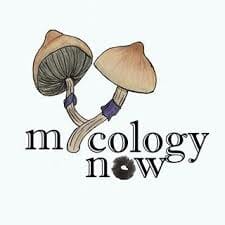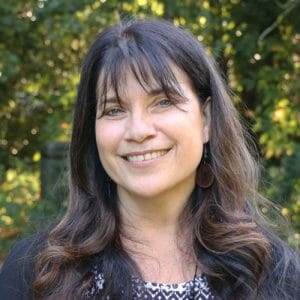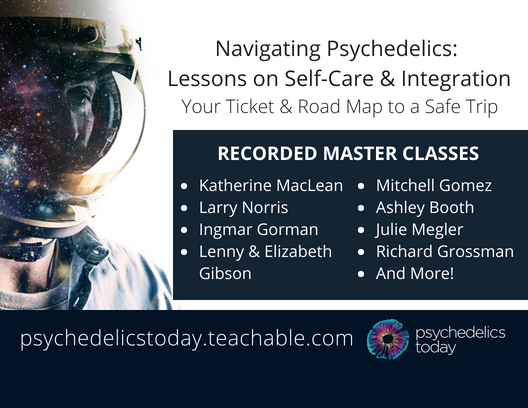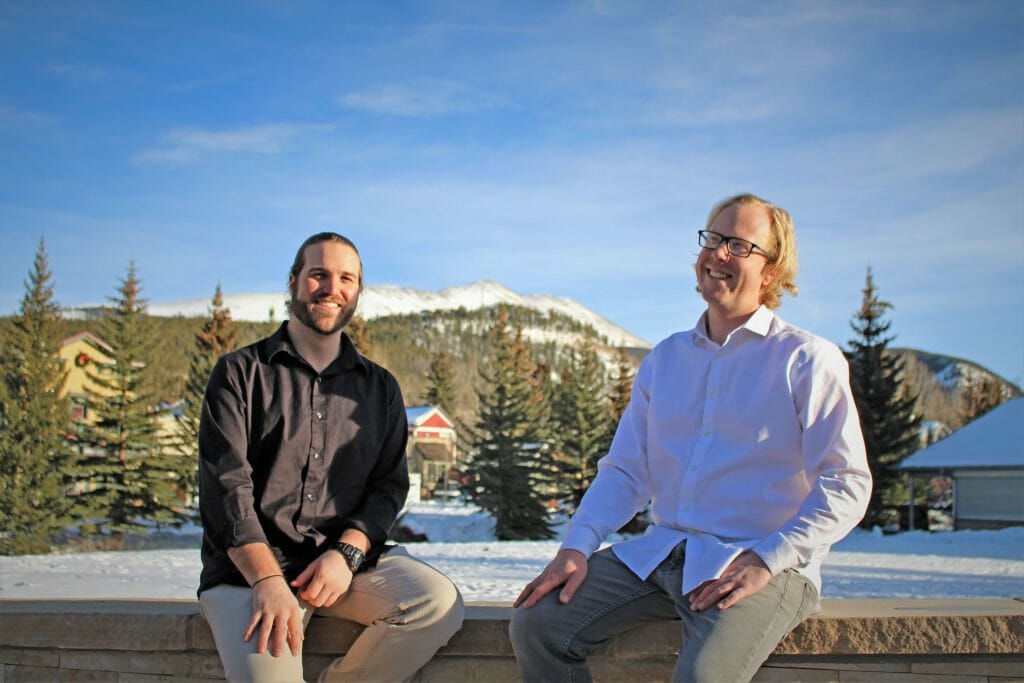In this episode, Joe and Kyle sit down to cover highlights from the Horizons Conference. In the show, they discuss the presentations and topics they heard at the conference.
3 Key Points:
- Joe and Kyle attended Horizons: Perspectives on Psychedelics Conference in NYC, it is a forum that examines the role of psychedelic drugs and plant medicines in science, medicine, culture and spirituality.
- Carl Hart gave a compelling talk; Dispelling the Lies that the Psychedelic Community believes about Drugs. Greater than 80% of the effects of drugs used are positive.
- Another popular topic was on the economics around psychedelics, and discussion on companies trying to monopolize on psychedelics.
Support the show
- Patreon
- Leave us a review on iTunes
- Share us with your friends – favorite podcast, etc
- Join our Facebook group - Psychedelics Today group – Find the others and create community.
Navigating Psychedelics
Show Notes
Horizons
- Kyle mentions he loves to attend because it's a great social event to connect with others interested or involved in the psychedelic field
- Kyle says the videos of the talks from the conference will be released soon
- They presented neuro-imaging data
5-MEO-DMT
- Dr. Alan Davis did a talk on 5-MEO-DMT and its challenges
- People have a hard time letting go into the experience because its so fast and overwhelming
- He talked about a term, reactivation, similar to flashbacks that happen between 1-2 weeks after the experience
- People were reporting it as positive experiences, 80% of people enjoyed the reactivations
- He did say that there were some bad players in the 5-MEO-DMT space
- There is no control in the dosing in underground facilitation
- A lot of people eyeball their dosage in 5-MEO-DMT
- Joe suggests to buy a milligram scale
Carl Hart
- Carl Hart did a talk; Dispelling the Lies that the Psychedelic Community believes about drugs
- Greater than 80% of the effects of drugs used are positive
- PCP is a psychedelic drug, but the psychedelic community chooses not to own it
- Ketamine was derived from PCP
- Hamilton Morris said that no drug is bad, it comes down to the dose and how its being used
- Poison can be a medicine, and medicine can be a poison, it all depends on dose
- No drug should be illegal, drug scheduling should just go away
- Some states are starting to ban private prisons
- Joe says the drug war is the war on race, the war on class, etc
- Joe suggests looking up the Portugal drug law; less overdoses, less HIV, less incarceration, etc
- Kyle mentions that in some cultures they would drink alcohol to get into a trance state and dance around all night and then chill for 3 days afterward because they would all be recovering from the hangover
Talks and Topics
- Shelby and Madison, co founders from Doubleblind Magazine did a talk
- Fiona Misham did a talk on the use of psychedelics for festivals and fun
- She talked about having on-site drug testing facilities and how they heighten safety
- In 2018 in Europe the MDMA contents were tested at 168milligrams
- 1 in 5 substances are mis-sold
- 1 in 20 MDMA samples were long lasting N-ethylpentylone, a drug that keeps you up for 3 days straight
- There was also an Economics panel
- Kyle says it was a heavy and hot debate
- There was a lot of conversation on companies making money on psychedelics
- There was worry from some on Compass Pathways monopolizing on psychedelics
- Kyle says big and fast growth can be dangerous for mental health
- It's possible that these companies will just push for results to pay off the investment than to really take the time to have slow meaningful sessions and include the therapeutic model
- When therapists have more congruence with their client, they get better results
Links
About Kyle
Kyle’s interest in exploring non-ordinary states of consciousness began when he was 16-years-old when he suffered a traumatic snowboarding accident. Waking up after having a near-death experience changed Kyle’s life. Since then, Kyle has earned his B.A. in Transpersonal Psychology, where he studied the healing potential of non-ordinary states of consciousness by exploring shamanism, plant medicine, Holotropic Breathwork, and the roots/benefits of psychedelic psychotherapy. Kyle has co-taught two college-level courses. One of the courses Kyle created as a capstone project, “Stanislav Grof’s Psychology of Extraordinary Experiences,” and the other one which he co-created, “The History of Psychedelics.”
Kyle completed his M.S. in clinical mental health counseling with an emphasis in somatic psychology. Kyle’s clinical background in mental health consists of working with at-risk teenagers in crisis and with individuals experiencing an early-episode of psychosis. Kyle also facilitates Transpersonal Breathwork workshops.
About Joe
Joe studied philosophy in New Hampshire, where he earned his B.A.. After stumbling upon the work of Stanislav Grof during his undergraduate years, Joe began participating in Holotropic Breathwork workshops in Vermont in 2003. Joe helped facilitate Holotropic and Transpersonal Breathwork workshops while he spent his time in New England. He is now working in the software industry as well as hosting a few podcasts. Joe now coordinates Dreamshadow Transpersonal Breathwork workshops, in Breckenridge, Colorado.
In this episode, Joe interviews Cody Swift from the Riverstyx Foundation. In the show, they talk about Peyote and the troubles for Native Americans and their church not having access and preservation of Peyote.
3 Key Points:
- RiverStyx is a small family foundation that funds projects that demonstrate the potential for healing and beauty. RiverStyx has funded the preservation of land to protect the sacred Peyote plant.
- The Portugal Model shows that decriminalization works. Portugal faced unprecedented overdoses and drug abuse, typically with heroine, and when they turned to decriminalization and treatment, overdoses and incarceration dropped significantly to almost none.
- The Native American churches have held onto their ceremonial practices very tightly, and they struggle to find legal and sustainable access to Peyote, their sacred plant medicine.
Support the show
- Patreon
- Leave us a review on iTunes
- Share us with your friends – favorite podcast, etc
- Join our Facebook group - Psychedelics Today group – Find the others and create community.
Navigating Psychedelics
Show Notes
About Cody and RiverStyx Foundation
- RiverStyx is a small family foundation
- Cody’s grandfather was the CEO of UPS, and before his grandmother passed, she put a large share of the stock into a small family foundation
- Cody and his father took their quarter of the Foundation and created RiverStyx
- “How do you use a million and a half dollars a year for remarkable good?” - Cody
- He fell into philanthropy along with the burden/blessing of making decisions to change the world with a lot of money
- He started LEAD (Law Enforcement Assisted Diversion)
- It is a program that aims to help those struggling with addiction rather than punishing them with prison time
The Portugal Model
- In the early 2000’s, Eric Schlosser’s book, Reefer Madness Reefer Madness: Sex, Drugs, and Cheap Labor in the American Black Market eluded to Portugal having decriminalized all drugs
- Portugal faced unprecedented overdoses and drug abuse, typically with heroine
- They realized that they couldn't arrest their country out of the drug addiction problem, so they turned to decriminalization and treatment
- They de-stigmatized treatment and drug users didn't have to feel ashamed and use drugs in the shadows
- This lowered HIV rates to almost nothing
- It was highly successful
- “Not everyone needs drugs, but not everyone should be at risk to go to jail if they get caught with them.” - Joe
- Joe encourages psychedelically inclined folks to look deeper into harm reduction and drug decriminalization
- “Let's provide these people safe access to a clean supply where they can stabilize again” - Cody
- Joe mentions a book by Jeremy Narby, Cosmic Serpent: DNA and the Origins of Knowledge, Cosmic Serpent: DNA and the Origins of Knowledge
- The drug war is causing danger to the plants
- Cody says, if cane syrup was made illegal because it is killing people, we wouldn’t ban the growth of corn, because it is sacred and used for so many other things
- “Jail is one of the biggest problems for mushroom users” - Joe
- Joe mentions that he was a little frustrated that Michael Pollan was able to take mushrooms and not go to jail, but the average person could go to jail
- Cody says that he highly respects Michael Pollan and what he has done for the psychedelic revolution, and that he thinks that Pollan wouldn't want anyone to go to jail for this
- People like Michael Pollan and Tim Ferriss have done a tremendous job securing funding for Psychedelic Research
Peyote
- Native American people had always been close to Cody’s heart
- As a philanthropist, he didn't know where to begin
- There is a myriad of problems facing Native American communities
- About 5 years ago, it just came into consciousness
- He got connected to Sandor of the Native American church
- He learned about ceremony and it became absolutely clear that he had to be a part of it
- It was an unclear path on how to support the community in the beginning, there was no 501C-3, there were no other philanthropists, the community is so large
- “How to support them in the continuance and empowerment of their using of a highly potent and healing substance to treat communities that have suffered so much, that was the key question” - Cody
- Looking at the threat and endangerment of the Peyote plant was the most important part of securing the preservation of this sacred plant
- Synthetic Mescaline is difficult to access and expensive
Ceremony
- It's hard to track the ancient original threats to the traditions
- The Native American churches have held onto the ceremonial practices very tightly
- It's important that white people don't just come in and tweak the ceremony
- The average life expectancy for Native Americans is only in their 50s
- They have gone through so much suffering, and they are very awake, sensitive people that are holding this culture and practice close to them
- Alcoholism is one of the largest problems in Native American communities, and Peyote has shown to be a highly tangible benefit and cure for alcoholism
Preservation
- It has taken over 4 years to begin building these alliances
- Riverstyx and Bronners have been the only sources of funding, they need more
- Through this, they purchased 605 acres of land for peyote preservation in Texas
- 600 acres may not solve the Peyote crisis, but it is a start and has opened the doors to connect with other farmers that has now led to 12,000 acres dedicated to peyote preservation
- This is to return sovereignty and control to the Native
- After the land was purchased, they had a pilgrimage with the Navajo
- Peyote is God to them, it's their connection to the spiritual realm
- Native Americans have resisted acculturation and stuck to their ways, that is their strength
Links
Email: cody@riverstyxfoundation.org
About RiverStyx

RiverStyx Foundation attempts to lessen human suffering caused by misguided social policy and stigma, while advocating enhanced opportunities for healing, growth, and transformation in such areas as drug policy, criminal justice, and end-of-life care. The Riverstyx Foundation believes in the human potential for healing, growth, and transformation. The Riverstyx Foundation works to provide a bridge to the relinquished parts of ourselves, our society, and our ecology, to ease those fears and prejudices by funding projects that demonstrate the potential for healing and beauty, when life is embraced in its fullest expression.
In this episode, Joe sits down with Jordan and Lou from Mycology Now, a company that makes and sells spore syringes for microscopy use. In the show, they talk about the start of Mycology Now, the culture change caused by psychedelics, and personal stories on how psychedelics changed their lives.
3 Key Points:
- Mycology Now is a company that produces premium spores for microscopy use. The goal is to spread knowledge about mycology, one spore at a time.
- We are living in an age of information that has never been experienced before, people have the tools to break the stigma on their own just by educating themselves.
- Psychedelics are becoming a culture change agent, more and more people are becoming accepting of psychedelics, and psychedelics are helping people come together to create positive change.
Support the show
- Patreon
- Leave us a review on iTunes
- Share us with your friends – favorite podcast, etc
- Join our Facebook group - Psychedelics Today group – Find the others and create community.
Navigating Psychedelics
Show Notes
Mycology Now
- Jordan and Lou are co-owners and creators of Mycology Now
- The company runs out of Florida
- Mycology Now is a company that sells spores for microscopy
- They have two locations in Denver
- The mission of the company is to spread spores and knowledge
- Lou shares how his interest in mycology began
- He says it began with his struggle with depression and suicidal tendencies
- Psilocybin had ended up being the only thing that helped with the struggle, the depression was completely erased
- Jordan shares his story
- His mother was in a relationship when he was about 10 years old with an abusive man
- This man abused narcotics, opioids
- He was abusive mentally, physically and emotionally
- He grew up being convinced that he wasn't worthy of love, and he blamed himself
- About 2 years ago, he discovered mushrooms, and was able to go into the painful parts of his childhood and forgive himself and heal from his trauma
- “Although negative things did happen to me, and to my family, I was not the cause of it, and I should not have to carry that around with me.” - Jordan
- He wants to do everything in his power to bring that to the rest of the world
Shattering the Stigma
- One thing that they have noticed about the younger generation is that they are way more open and have way more acceptance of psychedelics and an interest in self care and mental health
- “We are living in an age of information that has never been experienced before, people have the tools to break the stigma on their own just by educating themselves.” - Jordan
- Joe mentions that in Colorado, psychedelics are a bit normalized to have conversation about
- In Florida, the median age is 55, so there is more of a challenge because people that age grew up in the taboo time of psychedelics
The start of Mycology Now
- It organically grew into a website
- Lou says it was an entity that grew on its own
- Joe predicts that in 2020, we are about to see the Psilocybin movement really take off
- Joe brings up the Paul Stamets Stack, which is Cubensis, Lions Mane and Niacin
- There are testimonials about auditory changes that you can measure, you can increase your ability to hear frequencies
- They bring up an example of a deaf man being able to hear the waves of the ocean for the first time after practicing the Stamet’s stack
Psychedelics as a Culture Change agent
- Some people say its the worst time in history, and other people say this is the best time in history
- There is a hunger of more digestible ways of receiving information
- Psychedelics can help us understand the impermanence of things
- Lou brings up that Paul Staments and Dennis McKenna were the catalysts to his understanding of mycology
- Jordan says that his inspiration and influence came from people at music festivals
- People are very open and authentic when on psychedelics
- Meeting real people with real lives who had profound change in their lives because of psychedelics are his major sources of inspiration
Psilocybin for Cancer and Depression
- Lou’s sister was diagnosed with Metastatic breast cancer with a double mastectomy and was diagnosed with depression afterward
- After talking about the health benefits, she took psilocybin, and laid down and disconnected with her body
- Afterward, she was able to come out of it and talk about her ease with death
- The experience felt like death itself, and having felt what death might feel like, she no longer experiences depression about her cancer
Final Fun Fact
- Johns Hopkins psilocybin study on smoking cessation
- 80% of people were abstinent from smoking cigarettes on a 6 month followup
- Those people smoked an average of 19 cigarettes per day for an average of 31 years of their life
Links
About Mycology Now

Mycology Now is a humble small business dedicated to spreading awareness. They are a company that makes and sells spore syringes for microscopy use. Their Mushroom Spore prints and syringes speak for themselves; always having a heavy spore count.
In this episode, Kyle joins in conversation with Dr. Daniela Peluso, Cultural Anthropologist and Associate Director at Chacruna. In the show, they discuss guidelines for the awareness of against sexual abuse in Ayahuasca ceremony.
3 Key Points:
- Ayahuasca settings bring together shamans and participants, and with the increasing occurrence of such encounters, there is an alarming rate of incidences where shamans make sexual advances toward participants during or following ceremonies.
- Ayahuasca is a commonly used substance for seducing participants looking for healing, whom then return from their retreats needing additional healing from sexual abuse.
- This guideline reviews some of the key behaviors to look out for and ways to prepare before attending an Ayahuasca retreat to avoid and protect oneself against sexual abuse.
Support the show
- Patreon
- Leave us a review on iTunes
- Share us with your friends – favorite podcast, etc
- Join our Facebook group - Psychedelics Today group – Find the others and create community.
Navigating Psychedelics
Show Notes
Daniela
- Daniela has a PhD in Anthropology
- She was living with Indinenous people in Amazonia
- She conducted field work in the Amazonian regions of Peru over the last two decades, particularly Ese Eja
- She is on the board of Directors at Chacruna's Institute for sexual abuse
- She wrote an article on Ayahuasca and was noticed
Guidelines
- There was an initiative that made a guideline for doing Ayahuasca but it was held back because there are so many different ways ceremony can be performed and it wasn't accurate
- Drinking with friends is wise
- Drinking with experienced women or a couple is another wise move
Abuse mainly happens to women but it does happen to men as well
There is a higher chance for a person to speak up when they have someone they know and trust there with them
Ayahuasca tourism is why sexual abuse is such a problem
When someone doesn't know that touch is out of the norm in ceremony, they might accept it because they were never informed that it's wrong
They may think that being touched sexually is just a part of the ceremony, and it's not
AyaAdvisors and Tripadvisor are both decent resources for reviews on Ayahuasca centers/ceremonial retreats
Unless something goes terribly wrong, you will usually get good reviews
Places also change over time - It's not necessary for healers to touch intimate parts of your body or any area to which you do not consent
There are forms of healing where the body is touched, so it's important for the person to make known what is okay and not okay from the start - Curaciones, Sopladas and Limpiezas do not require you to remove your clothes
If a shaman removes clothing, that may be a warning sign because that is not a part of tradition - Look out for warning signs that a healers intentions with you might be sexual
When healers start to talk about how they aren't married or that they can give you ‘special treatment’ or that sexual or ‘love magic’ is necessary for healing, that is a warning sign
Use common sense and draw the line immediately if anything sexual comes up - Sexual Intercourse between healer and patient during ceremonies or directly after the ceremony is not acceptable in Ayahuasca tradition
- Sexual intercourse with a healer does not give you special power or energy
- Consider cultural differences and local behavioral norms when interacting with native healers, letting go of ethnocentrism Having an understanding of what is culturally normal is important
- Consider cultural differences and local clothing customs
- Protect your personal space, physically and spiritually
Each person has a right to know their body and know what feels right and wrong to them
No means no - Be wary if healers offer psychoactive substances other than those used during ceremonies
- He is a Shaman, not a Saint! There is a lot more “I am a Shaman” these days, where it used to be more of “I am not a Shaman”
Ayahuasca tourism definitely romanticized what being a Shaman really is - If violation occurs, get support
People should speak up as quickly as they are able to, vocally or physically
“There is no need to suffer in silence” - Daniela - Beware of what might appear to be consensual sex
It has a lot to do with having the same form of communication, trust, and power dynamics - Beware of getting romantically involved
- If you are aware of or witness sexual abuse, speak up
Final Thoughts
“Individuals have to accept that Ayahuasca has become a business and an industry as much as it is a spiritual practice, and that it includes the trappings of capitalism like exploitation and inequality.” - Daniela
Links
Email: d.peluso@kent.ac.uk
About Daniela Peluso, PhD

Daniela Peluso is a cultural anthropologist whose current research focuses on indigenous Amazonian communities. She has worked over the last two decades in Lowland South America, mostly with communities in in the Peruvian and Bolivian Amazon. She is actively involved in various local efforts on issues relating to health, gender, indigenous urbanization and land-rights and works in close collaboration with indigenous and local organizations as reflected in her publications. She also specializes on the anthropology of finance. She received her PhD in 2003 from Columbia University and is a senior lecturer in social anthropology at the University of Kent. She is an Associate Director of the Chacruna Institute for Psychedelic Plant Medicines and on the board of the Society of Lowland South America (SALSA) and People and Plants International (PPI).
In this episode, Kyle interviews Laura Northrup, Marriage and Relationship Somatic Psychotherapist and creator of the podcast, Inside Eyes; an audio series about people using psychedelics to heal from sexual trauma.
www.psychedelicstoday.com




